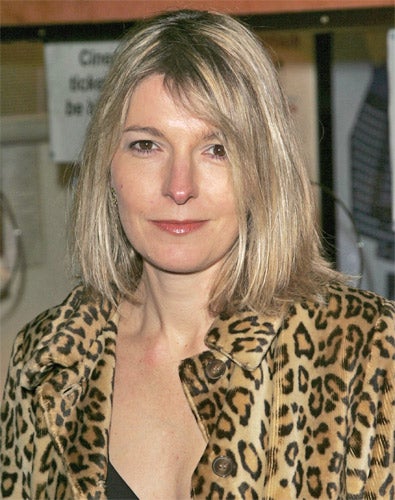The Week In Radio: Plays that manage to make sense of war

Your support helps us to tell the story
From reproductive rights to climate change to Big Tech, The Independent is on the ground when the story is developing. Whether it's investigating the financials of Elon Musk's pro-Trump PAC or producing our latest documentary, 'The A Word', which shines a light on the American women fighting for reproductive rights, we know how important it is to parse out the facts from the messaging.
At such a critical moment in US history, we need reporters on the ground. Your donation allows us to keep sending journalists to speak to both sides of the story.
The Independent is trusted by Americans across the entire political spectrum. And unlike many other quality news outlets, we choose not to lock Americans out of our reporting and analysis with paywalls. We believe quality journalism should be available to everyone, paid for by those who can afford it.
Your support makes all the difference.When you think of the impact that the Second World War, which lasted six years, still casts over our artistic output, the cultural response to war in Afghanistan, nine years old and counting, seems muted by comparison. It's not that the war is ignored in news and current affairs programmes. Far from it, it's all over the bulletins. But our general artistic response to it remains patchy. A common device is to channel the unavoidable sense of history repeating itself. As someone said, "it's déjà vu all over again" in Afghanistan, and that was key to an evening of plays on Radio 3.
Two hundred years ago the idea of British and Russian empires battling for supremacy in Afghanistan even gained a name – the Great Game – which provided the title for an acclaimed cycle of plays from the Tricycle Theatre. Introduced by Robin Lustig and intercut with transcripts from interviews with politicians, soldiers and journalists, some worked less well on radio, and by far the most effective play was the first, Bugles at the Gates of Jalalabad. Set around the worst defeat in British history in 1842 when a 16,000-strong English contingent died retreating from Kabul, Stephen Jeffreys used the remarkable diaries of Lady Florentia Sale, who had been taken hostage and kept diary extracts in her underwear. Recording the awful plight of British soldiers, starving and reduced to eating camel hearts, Lady Sale, played magnificently by Jemma Redgrave, voiced a familiar bewilderment at Afghan ferocity. "This is not battle, it is murder. To persons accustomed to civilised warfare, these details must be revolting. They never show mercy to us kaffirs." And making the modern parallels from this real-life diary required absolutely no artistic licence. As one soldier commented: "Someone in London's saying it's costing too much, we must make economies, we must halve the bribes we pay to tribal chiefs. We are stuck in a country nobody understands upholding a puppet king nobody wants."
One artistic response to radical Islam you hardly ever see is comedy. So the gently sardonic humour of Shai Hussein's play, Til Jihad Do Us Part, was a joy. Meena is a DJ, nearly 30 and still single. Her mother is growing increasingly desperate, her stance shifting from no boyfriends in the house to "Muslims, Christians, Jews OK, but no pagans". When she meets a handsome stranger, Meena resolves to tell him everything. Played by Rokhsaneh Ghawam-Shahidi, Meena is a wonderful creation, "pretty whorish for a Muslim girl" as she explains, but perfectly capturing the plight of young Pakistanis caught between two cultures. "Nine sexual partners? A bit higher than I was expecting," gulps her fiancé. "No, nine boyfriends. I've had a few more sexual partners." It turns out the handsome stranger is only after a visa, and when Meena checks him out online she suspects he may be a terrorist. "How can you trust a man without a Facebook profile?" Smitten however, she agrees to a wedding service, even though as she puts it, "the verses of the Koran made about as much sense to me as the storylines of Lost".
It was back to the Second World War, or thereabouts, for Simon Mayo's new book club, launched in his drive-time slot on Radio 2. Book of the month was Rebecca Hunt's Mr Chartwell, inspired by Winston Churchill's depression, which he called his "black dog". While Radio 4 (happily) has book programmes coming out of its ears, Radio 2's new venture is part of a general cranking up of culture on the network, following remarks from the BBC Trust about refreshing its arts coverage earlier this year. But Simon Mayo was not going to go all Radio 4-ish on his audience. The literary chat was pitched somewhere between intelligent and irreverent. "So it's your first book!" Simon enthused. "I know! Blimey!" said the author. How's that for accessible?
Join our commenting forum
Join thought-provoking conversations, follow other Independent readers and see their replies
Comments